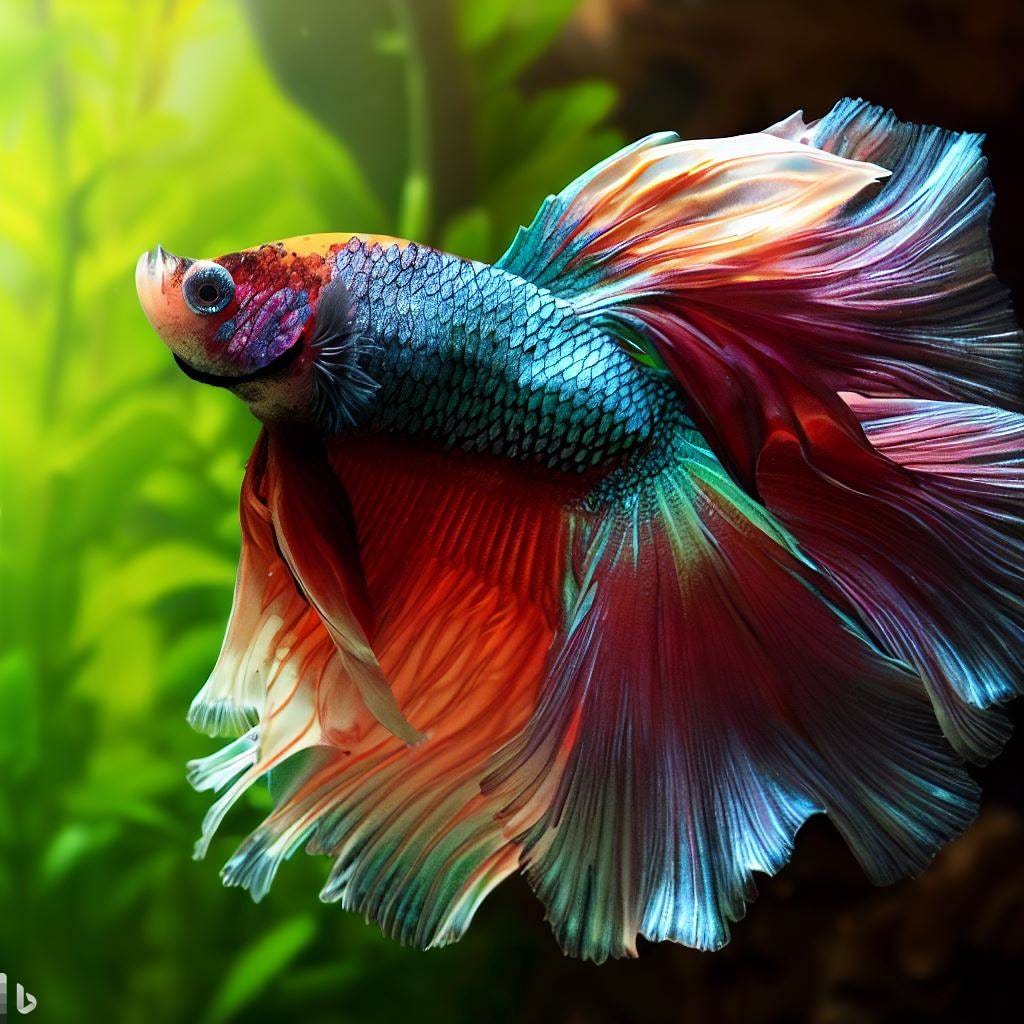Common Betta Fish Diseases and Just How to stop Them
The Ultimate Guide to Betta Fish Treatment: Necessary Tips for Keeping a Healthy And Balanced and Thriving Aquarium Environment
Efficient Betta fish treatment necessitates an extensive understanding of their one-of-a-kind environmental and physiological demands. Developing an ideal fish tank starts with picking the right container dimension and making certain optimum water problems, which are crucial for the health and well-being of your Betta. Furthermore, understanding proper feeding practices and creating a conducive habitat can considerably affect your fish's vitality and habits. As you take into consideration these foundational facets, it comes to be clear that keeping a growing aquarium atmosphere needs focus to detail and ongoing dedication. What details methods will you apply to enhance your Betta's lifestyle?
Choosing the Right Storage Tank
Selecting the suitable container for your Betta fish is crucial to ensuring its wellness and health. Bettas flourish in atmospheres that resemble their natural habitats, which normally include calm, warm waters. A storage tank dimension of at the very least five gallons is recommended to supply ample swimming space, as smaller storage tanks can cause stress and health and wellness concerns for these vivid fish.
When picking a storage tank, think about the tank's form and filtering system. Furthermore, a dependable filtration system is vital to preserve water high quality and lessen the regularity of water modifications.
Temperature regulation is one more vital factor; Bettas favor water temperatures in between 76 ° F and 82 ° F. Purchasing a great heater will certainly make sure that the water remains within this array, advertising a healthy and energetic way of life for your Betta. Lastly, giving appropriate container designs and hiding areas will aid minimize stress and urge natural habits, further boosting your Betta's wellness.
Preserving Water Top Quality
Preserving optimal water top quality is vital for the health and durability of Betta fish. This requires routine monitoring of numerous specifications, including temperature level, pH, ammonia, nitrite, and nitrate levels. Bettas grow in temperatures in between 76 ° F and 82 ° F, so preserving a secure temperature level is critical. Abrupt fluctuations can result in stress and disease.
Normal screening using a reputable water screening package can help guarantee these specifications remain within the proper arrays. Ammonia and nitrite degrees need to constantly be at 0 ppm, as also reduced focus can be hazardous to Betta fish.
Regular water modifications are essential to preserving water top quality. Furthermore, including a robust purification system can help in maintaining water quality and quality, giving a healthier environment for your Betta fish.
Ideal Feeding Practices
Giving a balanced diet regimen is vital for the health and vivid coloration of Betta fish, as their dietary needs play a substantial role in their general well-being. Betta fish are carnivorous naturally, requiring a diet plan high in healthy protein. A combination of high-quality pellets, frozen or real-time foods such as bloodworms, brine shrimp, and daphnia can offer the crucial nutrients they need.
Feed your Betta fish 2 to three times a day, providing just what they can eat within two to three mins to avoid overfeeding and preserve water high quality. Overfeeding can lead to weight problems and wellness issues, including swim bladder condition. It is important to check their nutritional intake and adjust part sizes as necessary.
Along with protein, a well balanced diet must include vitamins and minerals to advertise ideal wellness. Consider supplementing their diet regimen with top quality flakes or pellets especially developed for Betta fish, as these frequently contain essential additives.
:strip_icc()/how-long-do-bettas-live-1380782-hero-813aa5d34bab48cdb333edfe02471dad.jpg)
Producing a Suitable Environment

Water top quality is paramount; preserve a temperature level in between 76 ° F and 82 ° F, and guarantee the pH degree varies from 6 - betta fish.5 to 7.5. Normal water changes of 25-50% each week will certainly aid keep toxins at bay and make sure a secure environment
Integrating plants and concealing spots is vital, as Betta fish are normally territorial and enjoy having areas to check out and pull away. Live or silk plants, in addition to caves and accessories, can create a stimulating atmosphere.

Normal Wellness Checkups
Conducting normal wellness check-ups is vital for making certain the well-being of Betta fish, as very early detection of prospective problems can protect against significant health issue. These check-ups must encompass a thorough assessment of the fish's physical condition, habits, and ecological elements.
Begin by observing the Betta fish for any kind of signs of distress, such as sleepiness, loss of appetite, or unusual swimming patterns. In addition, inspect the fins and body for indications of staining, lesions, or fin rot, which can suggest infections or bloodsuckers. Routinely checking the water quality in the aquarium is equally vital; criteria such as pH, ammonia, nitrite, and nitrate levels ought to be preserved within optimum arrays to avoid anxiety and ailment.
Furthermore, think about helpful site preserving a log of wellness monitorings and water top quality examinations. This document can help with visit site the recognition of fads or reoccuring issues. If any irregularities are detected during the examination, it is vital to get in touch with a vet experienced in marine pets. Prompt treatment can make a significant difference in the recovery of your Betta fish, guaranteeing a long and healthy life in a well-kept fish tank setting.
Conclusion
In verdict, effective Betta fish treatment pivots on producing and maintaining an ideal aquarium setting. By complying with these standards, aquarists can promote the health and vibrancy of Betta fish, eventually resulting in a growing water ecosystem.